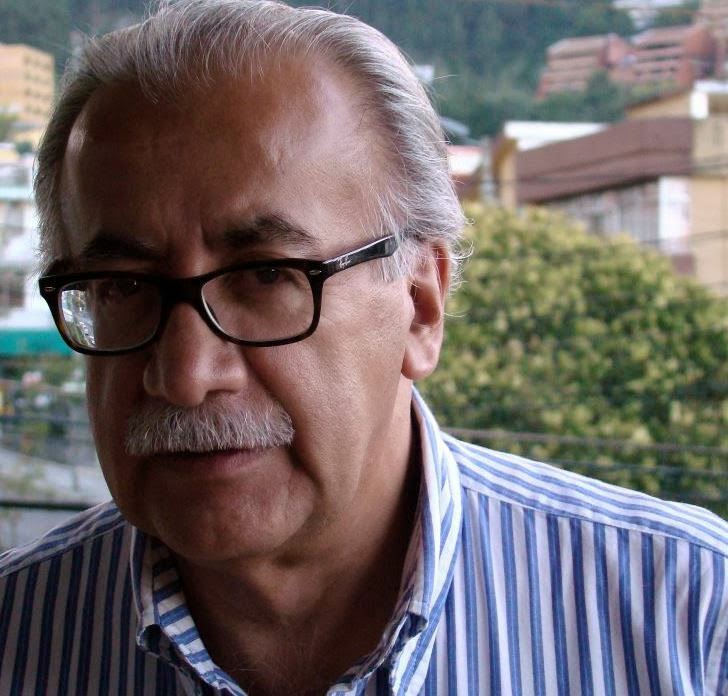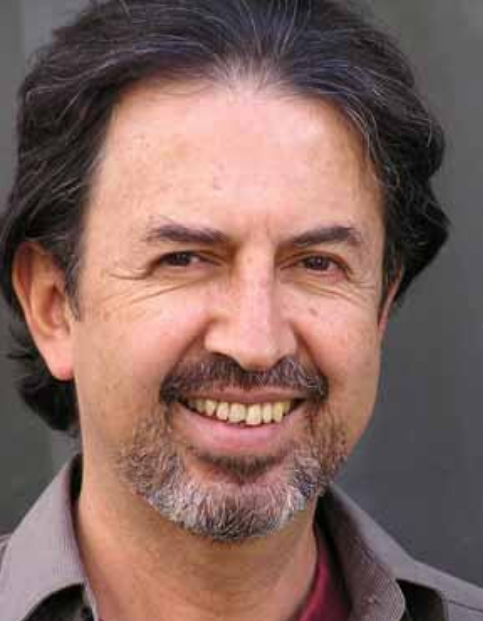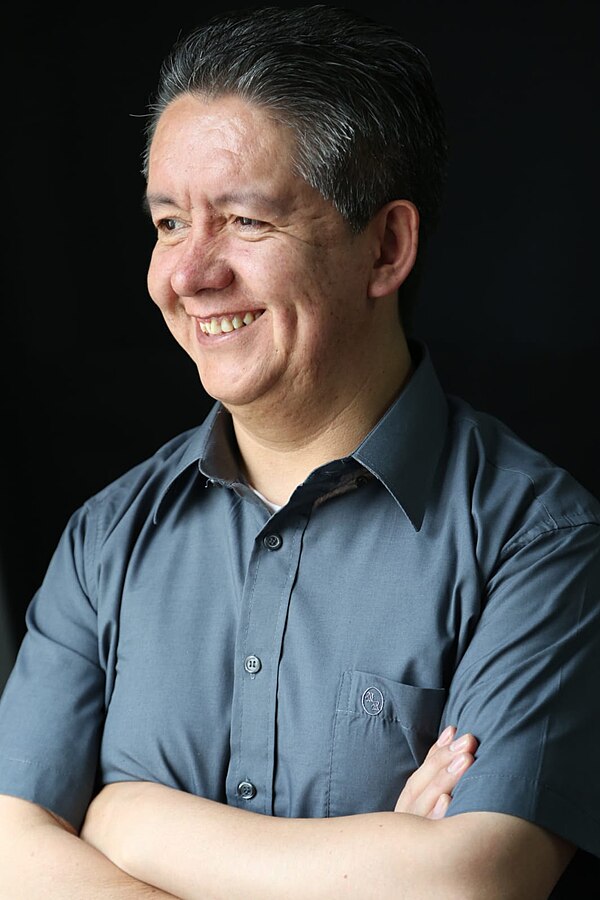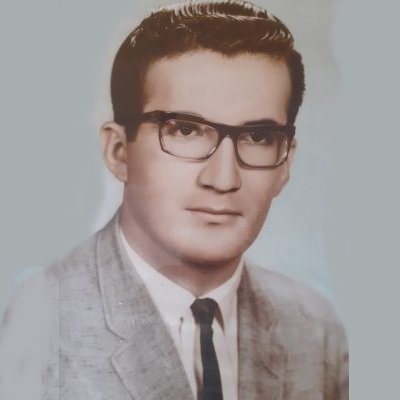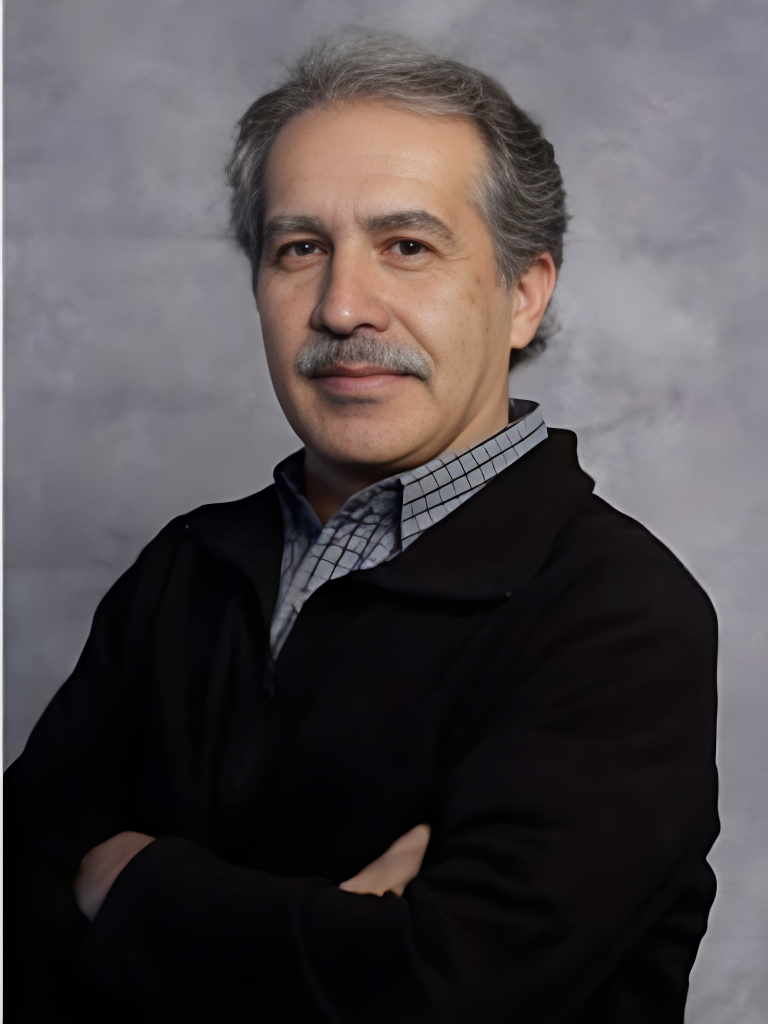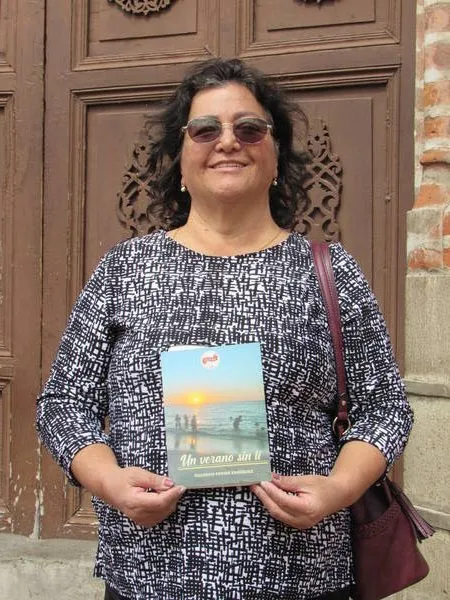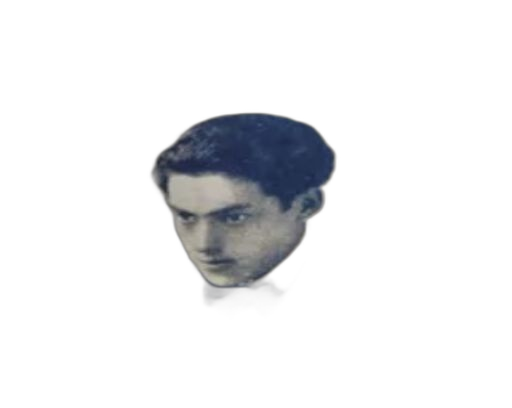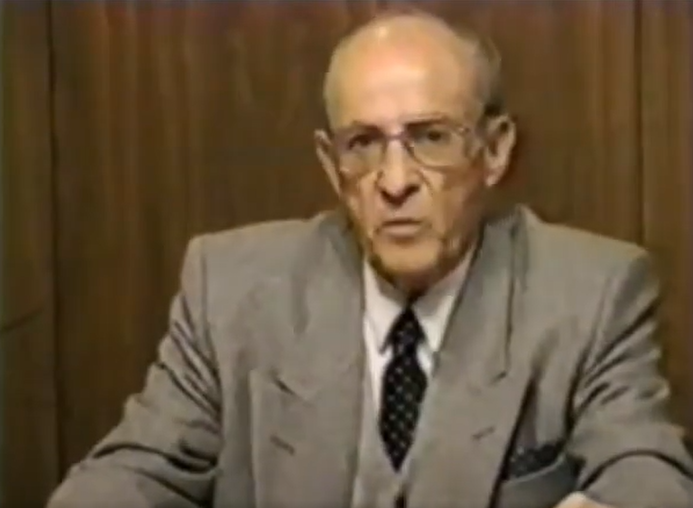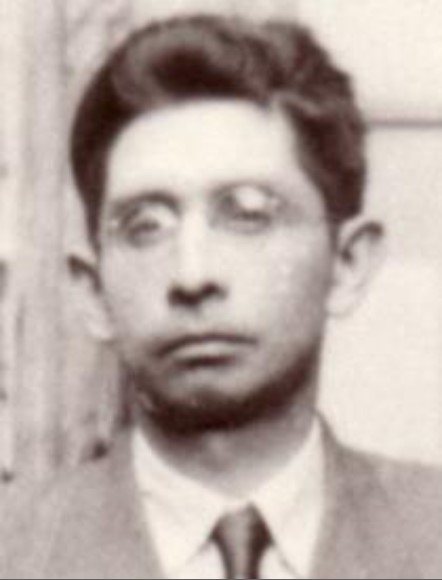Antonio Correa Losada (Pitalito, Colombia, 1950) is a Colombian-born poet, essayist, editor, and cultural manager residing in Ecuador. He has published numerous works of poetry, including El vuelo del cormorán (1989; “The Flight of the Cormorant”) and Desolación de la lluvia (1997; “Desolation of the Rain”), as well as essays and chronicles such as Crimen y castigo o la expiación que no cesa (2001; “Crime and Punishment or the Unending Atonement”) and Un camino abierto (2002; “An Open Path”). With a career spanning Mexico, Colombia, and Ecuador, Correa Losada has been an influential figure in publishing and cultural events, earning Ecuadorian citizenship in 2008 for his contributions to the country’s literary scene.
Continue reading “Antonio Correa Losada”Month: September 2024
Juan Secaira Velástegui
Juan Secaira Velástegui (Quito, Ecuador, 1971) is a poet, essayist, and visual artist whose work delves into themes of suffering, resilience, and personal transformation. He has published several critically acclaimed poetry collections, including Construcción del vacío (2009; “Construction of the Void”) and No es dicha (2012; “It Is Not Happiness”), which won the Jorge Carrera Andrade National Poetry Prize. In recent years, Secaira has adapted his creative process in response to his diagnosis of Amyotrophic Lateral Sclerosis (ALS), incorporating visual art into his body of work. His 2023 collection Eclipsa los arribos (“Eclipses the Arrivals”) earned him the Paralelo Cero Poetry Prize, further cementing his legacy as one of Ecuador’s most poignant contemporary voices.
Continue reading “Juan Secaira Velástegui”Alexis Naranjo
Alexis Naranjo Banda (Quito, 1947) is an Ecuadorian poet, university professor, art critic, and translator. He earned a Master’s degree in Linguistics from the University of Paris VIII and has published several notable poetry collections, including Profanaciones (1988; “Profanations”) and La piel del tiempo (1998; “The Skin of Time”), which won the Jorge Carrera Andrade National Prize. His work is known for its philosophical depth and rich language, influenced by both Latin American and Ecuadorian literary traditions. Naranjo’s poetry often explores themes of existence, spirituality, and the human condition.
Continue reading “Alexis Naranjo”César Molina Martínez
César Molina Martínez (Cañar, 1965) is an Ecuadorian poet and public servant currently residing in Chicago. He holds a degree in Political Science from the University of Cuenca and has served in various public roles, including as a councilman for the Municipality of Cuenca. His poetry, often exploring themes of exile, migration, and identity, has earned significant recognition, including the Premio Nacional de Poesía Jorge Carrera Andrade for Catholic Splendor (2000) and the Premio Nacional de Poesía César Dávila Andrade for Código de extranjería (2007). Molina Martínez’s work, known for its narrative intensity and biblical references, reflects his experiences living between Ecuador and the United States.
Continue reading “César Molina Martínez”Gustavo Salazar Calle
Gustavo Salazar Calle (Quito, Ecuador, October 3, 1966) is an Ecuadorian bibliographer, literary researcher, and historian. A corresponding member of the Academia Ecuatoriana de la Lengua since 2021, Salazar has dedicated over three decades to studying Ecuadorian and Ibero-American literature, with a focus on influential figures such as Benjamín Carrión and Rubén Darío. He has published 23 books, numerous scholarly articles, and has played a key role in the preservation of historical archives, including the Ecuadorian Consulate in Madrid and the Gaceta Judicial. His work continues to contribute significantly to the fields of literary and historical research in Latin America.
Continue reading “Gustavo Salazar Calle”Flame on the Corner by Marco Antonio La Mota
Translated to English by Richard Gabela on September 26, 2024, from the original work “LLAMA EN LA ESQUINA” by Marco Antonio La Mota (Unknown–1946) of Guayaquil, Ecuador. I have translated the title of the poem as “Flame on the Corner.”
Continue reading “Flame on the Corner by Marco Antonio La Mota”David Acosta Herrera
David Acosta Herrera (Quito, Ecuador, November 8, 1986) is an Ecuadorian poet, writer, and cultural activist. Founder of the collective eLeLLo (Anarquía, Arte y Ciencia), Acosta promotes artistic engagement through workshops, events, and community projects. His first poetry collection, Termineternal, published by El Ángel, explores surrealism and symbolism in a poetic journey from life to death. He won first prize in the Certamen de Invierno – Poesía libre in Córdoba, Argentina, in 2018 for his poem Aztra. His latest work, El clamor de una nuez que se parte en silencio, was published in 2023.
Continue reading “David Acosta Herrera”Jacinto Santos Verduga
Jacinto Santos Verduga (Bahía de Caráquez, September 16, 1944 – Guayaquil, December 2, 1967) was an Ecuadorian poet known for his emotionally charged and existentially reflective works. Despite his short life, Chintolo, as he was affectionately called, published three notable poetry collections: Testimonio (1965), La Llaga Insomne (1967), and Con Los Días Contados (1967). His poetry, marked by themes of nostalgia, sorrow, and a deep contemplation of life and death, continues to be celebrated posthumously, with unpublished poems discovered decades after his death contributing to his enduring literary legacy.
Continue reading “Jacinto Santos Verduga”Pablo Guerrero Gutiérrez
Fidel Pablo Guerrero Gutiérrez (Quito, Ecuador, November 1, 1962) is a prominent Ecuadorian musical historian, researcher, and author. With over 30 years of experience in the field, Guerrero has written more than 20 books on Ecuadorian music, including the comprehensive Enciclopedia de la música ecuatoriana. He studied at the Conservatorio Nacional de Música and holds a degree in Musical Pedagogy from the Universidad Técnica de Manabí. Guerrero is the founder of the Corporación Musicológica Ecuatoriana (CONMÚSICA) and has been recognized by the Academia Nacional de Historia for his extensive contributions to preserving Ecuador’s musical heritage.
Continue reading “Pablo Guerrero Gutiérrez”Socorro Freire Enríquez
Socorro Freire Enríquez (Riobamba, October 27, 1953) is an Ecuadorian writer, poet, and educator known for her contributions to literature and education. She holds advanced degrees in pedagogy and educational management, and has served as a professor and literacy advocate at the Universidad Nacional de Chimborazo. A recipient of numerous literary awards, including the Benjamín Carrión Prize, she has published poetry, essays, and short stories in works such as “Voces Azules a Vuelo de Pájaro”. She is also the founder of the Association of Contemporary Writers of Ecuador and an active member of international literary organizations.
Continue reading “Socorro Freire Enríquez”Telmo N. Vaca
Telmo N. Vaca del Pozo (San José de Chimbo, Ecuador, 1906 – Guayaquil, Ecuador, 1950) was a prominent Ecuadorian poet, journalist, and lawyer known for his revolutionary spirit and lyrical poetry. He gained national recognition in the 1920s with works like Labios románticos (1927) and Voz de bronce y otras voces (1928), which showcased his poetic originality and social consciousness. Vaca was also active in Ecuador’s political and intellectual spheres, founding the Semanario La Espiga and contributing to numerous publications. His legacy endures through his literary contributions and his advocacy for justice and ethical journalism.
Continue reading “Telmo N. Vaca”Efraín Torres Chaves
Efraín Torres Chaves (Guaranda) was a distinguished Ecuadorian lawyer, professor, and prolific author in the fields of law and social sciences. He served as a professor of criminal law at the Faculty of Jurisprudence and Social Sciences of the Universidad Central del Ecuador for 35 years and held prominent positions such as President of the Academy of Lawyers and the Academy of Law and Social Sciences of Quito. He also served as a Minister of the Supreme Court of Justice and president of its Second Chamber in 1980. Torres Chaves published numerous works, including El crimen del silencio (1990), La trayectoria de los semi-locos (1952), Pirámides truncadas, and Breves Comentarios al Código Penal del Ecuador (four volumes), for which he won the Gold Medal in 1979. His extensive contributions to legal scholarship, particularly in criminal law, earned him national recognition and several awards.
Continue reading “Efraín Torres Chaves”Elisa C. Mariño de Carvajal
Elisa C. Mariño de Carvajal (Guaranda, March 30, 1894 – June 29, 1977) was an Ecuadorian poet, journalist, and cultural advocate. She authored several poetry collections, including Procelarias, Campanas de Bronce, and Asfodelos, and wrote the lyrics to the Himno de Guaranda. A prominent figure in Ecuadorian literary circles, she founded the Centro de Periodismo and was a member of the Casa de la Cultura Ecuatoriana. Her work contributed significantly to the cultural life of her hometown and the country, cementing her legacy as a leading intellectual of her time.
Continue reading “Elisa C. Mariño de Carvajal”José Félix Silva
José Félix Silva (Guaranda, 1929 – unknown) was an Ecuadorian poet, journalist, and professor known for his politically charged poetry and commitment to left-wing revolutionary ideals. A significant figure in Ecuador’s intellectual and literary scene, he taught at the Central University of Ecuador and led the School of Journalism. Silva published notable works such as Canto a la Tierra desolada and El fuego delirante, which reflected his concerns about social justice and the human condition. He was also a mentor to younger poets in the Tzántzico Group, influencing Ecuador’s countercultural movements.
Continue reading “José Félix Silva”Carlos Bazante
Carlos Bazante Morejón (La Asunción, Bolívar, 1914 – date unknown) was an Ecuadorian poet, educator, and writer. He obtained his law degree in Quito and later taught at the “Sebastián de Benalcázar” high school and the University of Esmeraldas. Bazante’s literary work focused on poetry, publishing several collections, including Pecho Agreste (1953) and Yo era un Poeta Provinciano (1983). His writings, deeply rooted in the culture and social issues of Ecuador, appeared in notable publications such as Revista Altiplano and Letras del Ecuador. He is remembered for his contributions to Ecuadorian literature and education.
Continue reading “Carlos Bazante”
